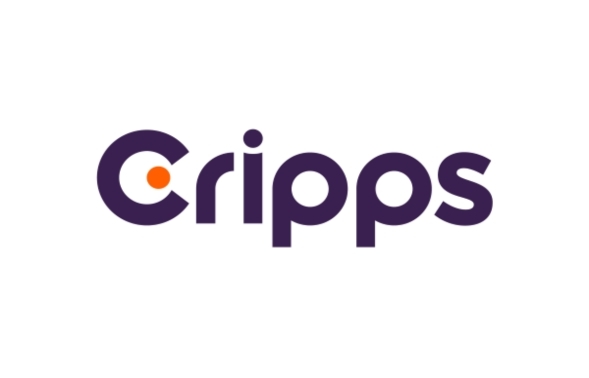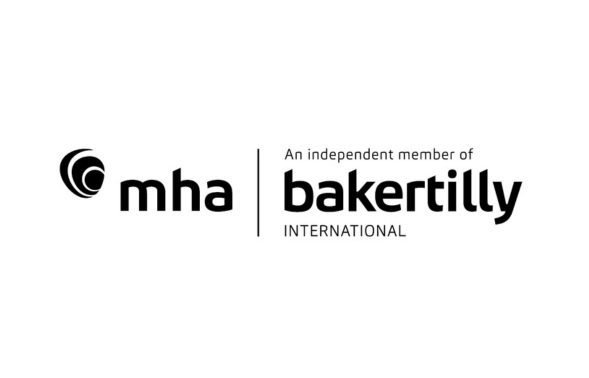
Spending Review 2020: Implications for businesses
In his Spending Review on 25 November Chancellor Rishi Sunak said the "economic emergency" caused by Covid-19 has only just begun, as he warned the virus would mean lasting damage to growth and jobs.
Clearly the situation is unprecedented in peace time. The cost of Covid-19 is huge and the Government will need to find more money from spending cuts and taxes just to balance revenues on a day to day basis. Businesses could therefore expect to see tax rises announced in the March 2021 budget.
The big decision for the government will be to decide when to stop the support to the recovering economy and when to start strengthening public finances by tax rises. The extreme uncertainty underlines how difficult that decision could be.
Businesses should strengthen their cash flow management now ahead of the end of supports and tax changes.
Find out how you can plan ahead

Additional Restrictions Grant: West Sussex
Businesses and sole traders that are struggling and are not covered by other grant schemes such as the Local Restrictions Support Grant (LRSG), or where additional funding is needed, can apply for the Additional Restrictions Grant (ARG).
Local councils have the freedom to determine the eligibility criteria for these grants. However, we expect the funding to help those businesses which - while not legally forced to close - are nonetheless severely impacted by the restrictions.
These include:
- Businesses which supply the retail, hospitality, and leisure sectors
- Businesses in the events sector
- Business required to close but which do not pay business rates

Further funding available for eligible SMEs in the Coast to Capital LEP area
The Visitor Economy (Kickstart Tourism) and Wider Economy (Restart & Recovery SME) grant is available to help smaller businesses adapt and diversify following the immediate challenges faced by COVID-19. Funded by the European Regional Development Fund (ERDF), eligible SMEs can access grants of between £1,000 - £3,000 (up to £5,000 in exceptional circumstances) for specialist advice.
The grant scheme will be launched on Monday 30 November and full applications will need to be returned with related quotes by Monday 7 December 2020 at 11:59pm.
Further information, including full eligibility criteria and the information that businesses will need to have ready, can be found online here.
It is likely that this scheme will be over-subscribed and therefore we encourage businesses to submit their application as soon as possible, as eligible applications will be assessed in the order that they arrive.

On 5 November, the Government announced a five-month extension to the Coronavirus Job Retention Scheme (CJRS), which was due to end on 31 October.
The furlough scheme will now run until the end of March 2021. This means that employers can carry on furloughing their employees and claiming a furlough grant from the government throughout this period.
The CJRS will broadly follow the same rules as they stood in August, where employers can furlough (wholly or partly) their staff and pay at least 80% of their usual pay for hours they did not work in the pay period.
The employer can then reclaim 80% of an employee's wages for unworked hours back from the government (up to a cap of £2,500), although the employer is required to pay employer pension and employer national insurance costs without reimbursement, in addition to an employee's pay for worked hours. This level of support will be reviewed in January 2021.
Brexit webinar - watch the recording!
What are the key actions to prepare for the customs and tax changes from 1 January 2021?
With the end of the transition period fast approaching, a number of tax and trading changes will arise once the UK leaves the EU Single Market and Customs Union.
In this webinar with law firm DMH Stallard, we discussed the key tax and contract considerations you should be aware of, answer the questions businesses are asking and provide practical steps you can take to prepare for the changes ahead.
Topics included:
- What will the changes to the UK VAT system mean for your business?
- How will leaving the transition arrangements affect trade in and out of the EU?
- Will your contracts be legally frustrated by Brexit? If so, how can you change them to make trading more level?
- Will the data laws change in 2021?

Placing goods on the Great British and EU markets from January 2021
Businesses must take steps to ensure compliance with EU requirements for certification and labelling of products and materials by 1 January 2021.
Manufactured goods are regulated in different ways and are covered by different UK and EU rules. To ensure you are following the right guidance for your business, check which regulations apply to your products.
Toys, PPE and machinery (for example), most of which can be identified by the CE marking, can still be placed on the UK market until 1 January 2022. This may be longer for some goods so consult your sector specific guidance. If a business has already placed CE marked goods on the GB or EU market before the 1 January 2021, they don't need to take any action for these goods.
This guidance does not apply to placing goods on the market in Northern Ireland or to goods moving between Northern Ireland and Great Britain. There is information on this in the blog.

Brexit imports and exports
From 1 January 2021, the UK will operate a full external border with the EU, which will entail major changes for imports and exports to and from the trading bloc. Declarations will be needed to import or export specific (limited) goods categorised as 'controlled'.
However, for non-controlled goods brought from the EU to GB, import controls apply in three stages: January, April and July 2021. Some changes will apply to all goods movements, and will involve customs declarations, customs duties and VAT on imports, and safety and security declarations. 'Additional requirements' come in, but only affect certain specific goods movements, such as foodstuffs.
Action points to consider include:
- Economic Operators Registration and Identification numbers
- Using a customs intermediary
- Postponed VAT accounting for goods imported from the EU
- Delaying customs declarations and payment of tariffs

Data protection for businesses after 1 January 2021
Regardless of whether the UK and the EU agree a trade deal, if a business needs to continue to receive personal data from the EU for business use, they may need to take action on data protection.
If no UK data adequacy decisions have been made by the end of the transition period, UK businesses will need to map out data flows with their EU partners and put alternative transfer mechanisms in place to continue to lawfully receive personal data from the EU. Most commonly, this will require standard contractual clauses being put in place.
Businesses will also need to familiarise themselves with the data protection provisions of the Withdrawal Agreement, to ensure they are in a position to comply.
Find out more about data protection

£1 million Annual Investment Allowance cap extended
The government has confirmed that the £1 million Annual Investment Allowance (AIA) cap will be extended throughout 2021 in a move to boost confidence as companies look to weather the pandemic and plan for the future.
The AIA was scheduled to reduce back down to £200,000 with effect from 1 January 2021. But with what has been an extremely difficult year for business, there was speculation on whether the increase would be extended to help stimulate the economy further during the recovery from Covid-19.
The Annual Investment Allowance £1 million temporary cap will now be extended until 1 January 2022.

Off-payroll working from April 2021
The Off-Payroll working legislation is designed to counteract the tax and national insurance advantages for workers inserting a company between themselves and their end client.
This personal service company (PSC) contracts with end clients in order to provide the worker's services. The PSC would then pay dividends, as opposed to salaries, resulting in National Insurance (NIC) savings.
This type of transaction is already subject to legislation to try and counteract it, known as IR35 which was introduced in April 2000. Where IR35 rules applied, then the worker would be required to operate payroll on payments deemed to be paid by the personal service company.
The rules were originally due to begin on 6 April 2020, however at the last minute the government announced a one year delay to the rules as a consequence of the Covid-19 pandemic. The rules are therefore due to commence from 6 April 2021.

Business Succession Webinar - recording now available!
On Thursday 5th November, we joined up with law firm Rix & Kay to present a practical live webinar on business succession.
Together we gave an overview of some of the most critical steps business owners should take now to ensure any future succession or sale is well planned and tax efficient.
Among the topics our expert speakers discussed were:
- Shareholder Agreements - what do they achieve?
- Succession Planning in Shareholder Agreements
- Cross-option Agreements and Life Policies
- Company Buyback
- Reserved Matters
- Business Property Relief
- Inheritance Tax Planning
- Sustainable Shareholding
SRA transparency rules - are you seeing the benefit?
The Solicitors Regulation Authority (SRA) Transparency Rules were first introduced in December 2018, with additional elements introduced in November 2019.
The SRA Transparency Rules require regulated law firms to publish their pricing and service information on their websites for specific legal services such as conveyancing and probate. Firms must also publish their complaints procedure and display the SRA clickable logo which proves the practice is genuine. For firms without a website, this information should be available in other formats.
Almost one year on from when the SRA Transparency Rules came into full effect, IRN Research has conducted a one-year review of the reform.

MHA Carpenter Box Financial Advisers news update
Read the November newsletter!
As the promise of a new year becomes visible on the horizon - no doubt a welcome sight to some - we find ourselves in 2020's eleventh month. While there may be less gathering around bonfires than we would usually expect at this time of year, that needn't mean less fireworks, nor the excitement that comes with them.
And while not everything is "normal", we can find consistency in the turning of the seasons as the leaves change hue and make their way to the ground.
This month's newsletter covers:
- Recent financial movements within the UK, including industry updates and the state of the economy
- Brexit and European news
- A global overview: the US, Far East and Emerging Markets

Events:
We are currently planning our 2021 webinar schedule so keep an eye on our event page for any updates.
Resources:
- Business Support Guide: Autumn 2020
- UK Brexit Planning Checklist
- Customs Training
- MHA Construction Sector Report 2020
- MHA Legal Sector COVID-19 Survey Report
- MHA Real Estate Matters - Issue 16
- MHA The Engine - Issue 7
- Not for Profit Update - November 2020
- Financial Update November newsletter
- Electric car tax considerations for companies
- Tax Rates 2020-21
For a full listing of our resources and information sheets, visit our resources page on the MHA Carpenter Box website.

30 Nov 2020
- Company accounts filing deadline
- Corporation tax return
01 Dec 2020
- Corporation tax payment
07 Dec 2020
- VAT return
19 Dec 2020
- Monthly postal PAYE/class 1 NICs/student loan payment
- CIS return
22 Dec 2020
- Monthly electronic PAYE/class 1 NICs/student loan payment
30 Dec 2020
- Online self-assessment (PAYE)
31 Dec 2020
- CT61
- Company accounts filing deadline
- Corporation tax return





















